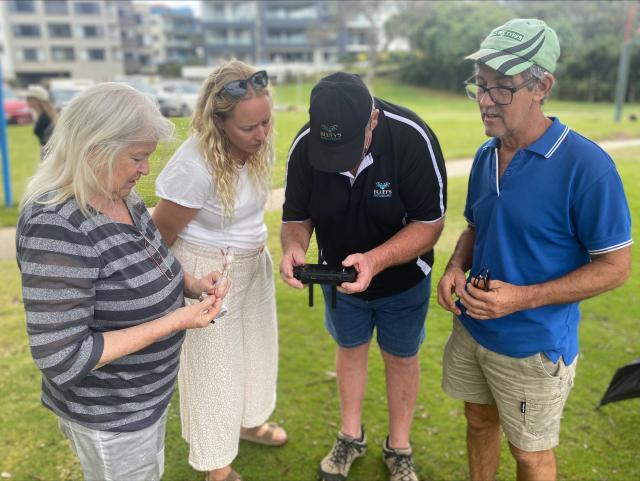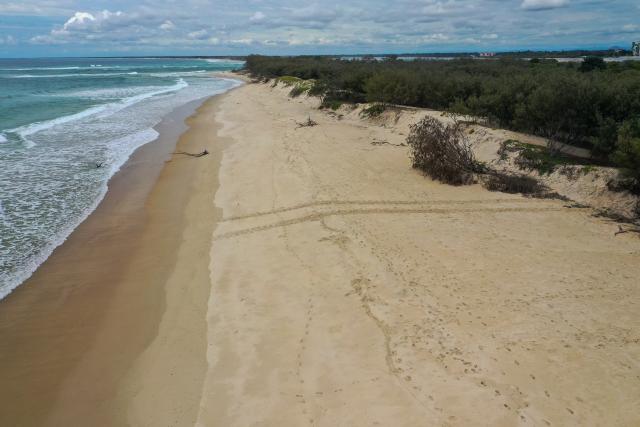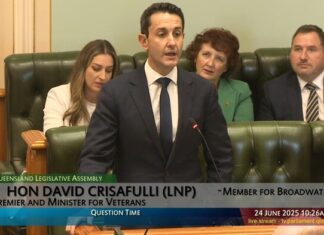With turtle nesting season fast approaching, TurtleCare Sunshine Coast has had to think outside the box to protect endangered loggerhead turtle nests on North Bribie Island.
An initial two-week trial will see if a drone can be used to monitor the beach for turtle tracks, with the view to extending the experiment for the season if it is successful.
Sunshine Coast Council’s TurtleCare coordinator Kate Hofmeister said the eye in the sky was a safe way volunteers could continue to monitor the 1.1km stretch of beach at North Bribie Island, which was cut off due to the breakthrough earlier this year.
“We want to apply the same level of monitoring effort that our volunteers have been doing via foot, bicycle and boat since we began monitoring there since 2014,” Mrs Hofmeister said.
“These nests are still at risk from predators such as native goannas or foxes – so it’s still important to identify nests, protect the clutches and be able to relocate them if necessary.
“Before the breakthrough our dedicated TurtleCare volunteers, would travel by boat each morning to Bribie Island and ride a bike down 10 – 15km of beach checking for turtle tracks.”
Ms Hofmeister said they would still continue to do that on the main portion of the island.
“It is logistically challenging and at times unsafe for our citizen scientists to access North Bribie each day by boat or foot due to unstable sand,” she said.
“We’re hopeful a drone will give us the helping hand to survey the area.”
Mrs Hofmeister said the expertise of our Sunshine Coast community had provided vital support for the trial.
“We are grateful to be able to partner with people who are really experienced in their field, such as our newest TurtleCare volunteer Doug from Bluey’s Photography.
“During the trial, Doug – the drone operator – will fly over the beach in two sweeps in the early morning, checking for tracks.
“When we detect tracks, a trained TurtleCare volunteer will travel to the island via kayak or small boat to confirm the nest and protect it.”
Mrs Hofmeister said a recent reconnaissance mission demonstrated it was possible to safely undertake the monitoring.
“Unbeknownst to us, one of our volunteers went over to the island and created some fake turtle tracks – which we could spot through the drone.
“So, we are excited to see the outcomes of the two-week trial when the turtle season begins in November.
“If it is feasible, we will extend the trial for the season and train our dedicated community TurtleCare citizen scientist to fly the drones with the support of Bluey’s Photography with Dr Javier Leon from the University of the Sunshine Coast helping to analyse the drone images.”
With turtle season approaching, Sunshine Coast Council Environment Portfolio Councillor Peter Cox encouraged residents to cut the glow for turtles.
“Turtle nesting season is a time when the whole community can come together as a turtle-friendly community to celebrate and help protect these threatened species,” Cr Cox said.
“We can all help by keeping plastic waste out of waterways and beaches and cutting the glow of lights after 8pm during nesting and hatchling season.”
To report turtle tracks, new nests and emerging hatchlings on the southern end of the coast, call Sunshine Coast Council’s TurtleCare hotline 0437 559 067 or for sightings from Mooloolaba north, call Coolum and North Shore Coast Care on 0403 370 157.









